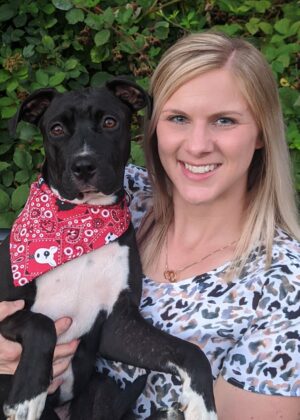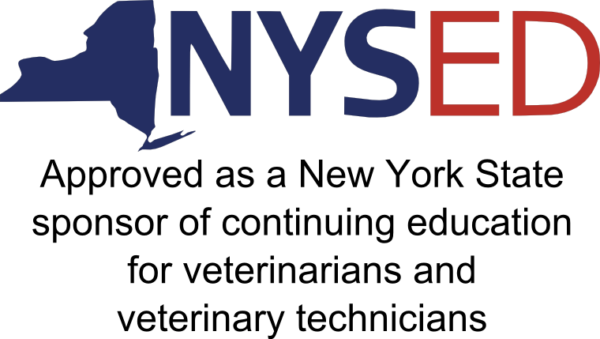ExpiredEyes, ears & beyond: live online
Aspen/Snowmass live online course
| February 11th - 13th, 2021

Ashley Bourgeois D.V.M.
Diplomate, American College of Veterinary Dermatology
Animal Dermatology Clinic
Portland, OR
Alison Clode D.V.M.
Diplomate, American College of Veterinary Ophthalmologists
Staff Ophthalmologist
Port City Veterinary Referral Hospital
Portsmouth, NH
Alison & Ashley are going to discuss management of the most common problems that they encounter in their clinical practices. This course will present a practical approach to the diagnosis and management of these common problems using a combination of didactic and case-based teaching. This combination of an Ophthalmologist and Dermatologist is sure to provide you with some very practical tips on a broad range of topics.
Seminar Schedule:
|
Single day registration available: Limited to 80 registrants each day to enhance the webinar question and answer experience All times are Eastern time. Seminars start each day at 8.00am Pacific, 9.00am Mtn, 10.00am Central & 11.00am Eastern Thursday February 11 (5.5 CE hrs)8:00am – 1:30pm Pacific 11:00am – 4:30pm Eastern 11:00am – 1:45pm ETDr. Bourgeois
2:00pm – 4:30pm ETDr. Clode
Friday February 12 (5.5 CE hrs)8:00am – 1:30pm Pacific 11:00am – 4:30pm Eastern 11:00am – 1:45pm ETDr. Clode
2:00pm – 4:30pm ETDr. Bourgeois
Saturday February 13 (5.0CE hrs)8:00am – 1:00pm Pacific 11:00am – 4:00pm Eastern 11:00am – 1:30pm ETDr. Bourgeois
1:40pm – 4:00pm ETDr. Clode
|
Seminar Topics:
Dr. Bourgeois:
What am I missing in the itchy dog?
Several studies show that pruritus is the number one reason a client brings their dog to the veterinarian. Allergic skin diseases are common problems in canine patients, and many of the clinical presentations are similar which can make these cases frustrating. This lecture will focus on the allergic workup, acute treatment of pruritus, and client communication.
How to conquer the itchy cat
Different categories of feline allergies can be difficult to differentiate from one another. Understanding the different patterns of cutaneous lesions, response to treatment, and management of secondary issues is important for control.This lecture will present how to differentiate and perform a diagnostic workup for flea, food, and environmental allergies in cats.
Diagnosing otitis the right way
Managing difficult otitis externa cases in cats and dogs can be challenging, chronic, and frustrating. This lecture will discuss a complete approach to the diagnostic workup of otitis externa including cytology, culture and sensitivity, handheld otoscopy, and video otoscopy.
From ear drops to pills: how to effectively treat otitis externa and media
Choosing appropriate ear cleansers and initial therapeutics can be imperative in defeating micro-organisms. However, systemic therapy can also be used to help alleviate discomfort and treat infection in complicated cases. This is especially true when disease extends deeper than the external ear canal. This lecture will address how to assess the best treatment plan for every type of otitis case from a simple yeast otitis to a resistant otitis media.
Don’t fear the smear (basics of cytology)
Cytology is one of the most important diagnostic tools in dermatology. A quick, inexpensive test that can be essential in diagnosing and managing various skin diseases. This lecture will discuss what different findings of cells, organisms and structures may indicate. Also, techniques for collecting and interpreting cytologies from different anatomical sites will be discussed.
Dr. Clode
How should I perform a complete ophthalmic exam?
How should I manage entropion in puppies and kittens?
How should I manage entropion in older dogs and cats?
What can I do about distichia?
How should I manage ectopic cilia?
How should I approach eyelid lacerations?
Do I realllllyyy have to replace that prolapsed third eyelid gland?
What’s going on with blepharitis in dogs?
What’s going on with blepharitis in cats?
What can I do for KCS, especially when it’s non-responsive?
How should I recognize and manage simple corneal ulcers in dogs?
What about nonhealing ulcers in dogs?
How should I recognize and manage complicated corneal ulcers in dogs? 2020
What about corneal ulcers in cats?
How should I diagnose and manage eosinophilic keratitis in cats?
What is a good approach to epiphora?
What can be done for tear staining?
How should I manage eyelid tumors in dogs?
What about eyelid tumors in cats?
What is Ocu-GLO and what can it be used for?
Topical steroids or cyclosporine or NSAIDs….?
Why is this cornea blue?
How should I handle exophthalmos?
Seminar Speakers
-
 Ashley Bourgeois D.V.M.
Diplomate, American College of Veterinary Dermatology
Animal Dermatology Clinic Portland
Portland, OR 97086
Ashley Bourgeois D.V.M.
Diplomate, American College of Veterinary Dermatology
Animal Dermatology Clinic Portland
Portland, OR 97086
-
 Alison Clode D.V.M.
Diplomate, American College of Veterinary Ophthalmologists
Staff Ophthalmologist
Port City Veterinary Referral Hospital
Portsmouth, NH
Alison Clode D.V.M.
Diplomate, American College of Veterinary Ophthalmologists
Staff Ophthalmologist
Port City Veterinary Referral Hospital
Portsmouth, NH
CE Hours
This seminar is approved for up to 16 CE hrs.
This program has been approved for a maximum of 16 hours of continuing education credit in jurisdictions, which recognize AAVSB’s RACE approval; however, participants should be aware that some boards have limitations on the number of hours accepted in certain categories and /or restrictions on certain methods of delivery of continuing education. Call IVS at 800-487-5650 for further information.

Registration Fees:
Pick your days and topics. Limited to 80 registrants each day to enhance the webinar question and answer experience.
After registering: your SEMINAR REGISTRATION CONFIRMATION E-MAIL will contain a Zoom ink for you to pre-register for each webinar. You need to do this prior to each webinar, so that you get a personalized link to the actual webinar.
Veterinarians: IVS attendees who currently have an FTC (Future transfer Credit) from a previously cancelled seminar:
- Please do not use the online registration as you will be charged again. You cannot use the credit thru this online registration.
- Please e-mail with your request (include name of registrant and which seminar you were originally scheduled to attend) for registration – We will register you and deduct this amount from your credit.
E-mail your request to: ivsceonline@gmail.com
Technician discount: use code techonline for a 10% discount as you register.
Registration Includes:
- up to 16 RACE approved CE hours. Thursday & Friday are 5.5 CE hours each day and Saturday is 5.0 CE hours
- access to online course notes
- certificate of attendance available online
After registering: your SEMINAR REGISTRATION CONFIRMATION E-MAIL will contain a Zoom link for you to pre-register for each webinar. You need to do this prior to each webinar, so that you get a personalized link to the actual webinar.
Seminar Registration:
Add to Calendar
-
Snowmass online course
February 11, 2021 - February 13, 2021
8:00 am - 1:00 pm
Register online
Online registration is easy and fast.
But please confirm your hotel reservations prior to completing your registration or booking flights. Many Hotels are selling out many months ahead of our seminars. If you need to book a hotel room, click the link to the online hotel registration page. If none is available for your selected seminar, please fill out our hotel request form or contact our office at 800-487-5650. Please note that hotel rooms are not confirmed until you receive confirmation from the hotel (if you booked online thru our group link) or from our office for hotels that do not offer the online link.
IVS is now required by AAVSB RACE to upload your completed attendance into their “RACEtrack” system. Your state of license and your license number are required for all seminars starting in January 2022. More information is available at https://www.aavsb.org/ce-
Questions?
For regular seminars: ivseminars@yahoo.com
Accommodation Registration
Reserving Rooms
We reserve rooms starting the day prior to the seminar and ending on the last seminar day. However, if you need additional days, we will work with the hotel to accommodate your request based on availability.
Getting Confirmation
After you submit this hotel request form, you will receive an e-mail confirmation of your request for the hotel accommodations. Please note that this does not confirm your hotel accommodations.
After processing the request, our office will e-mail you an actual hotel confirmation letter which will confirm your stay with the hotel. You are not confirmed until you receive this hotel confirmation. Please check the details when you receive this confirmation.
Please note: At this time, we are not able to accept credit card details online. As all hotels require a valid credit card to guarantee your room, after submitting the hotel request form, please call our office at 1 (800) 487-5650 Monday-Friday 9:00am-5:00pm (pacific) to provide the card number. Your Hotel Confirmation will be emailed to you after your room is guaranteed.
